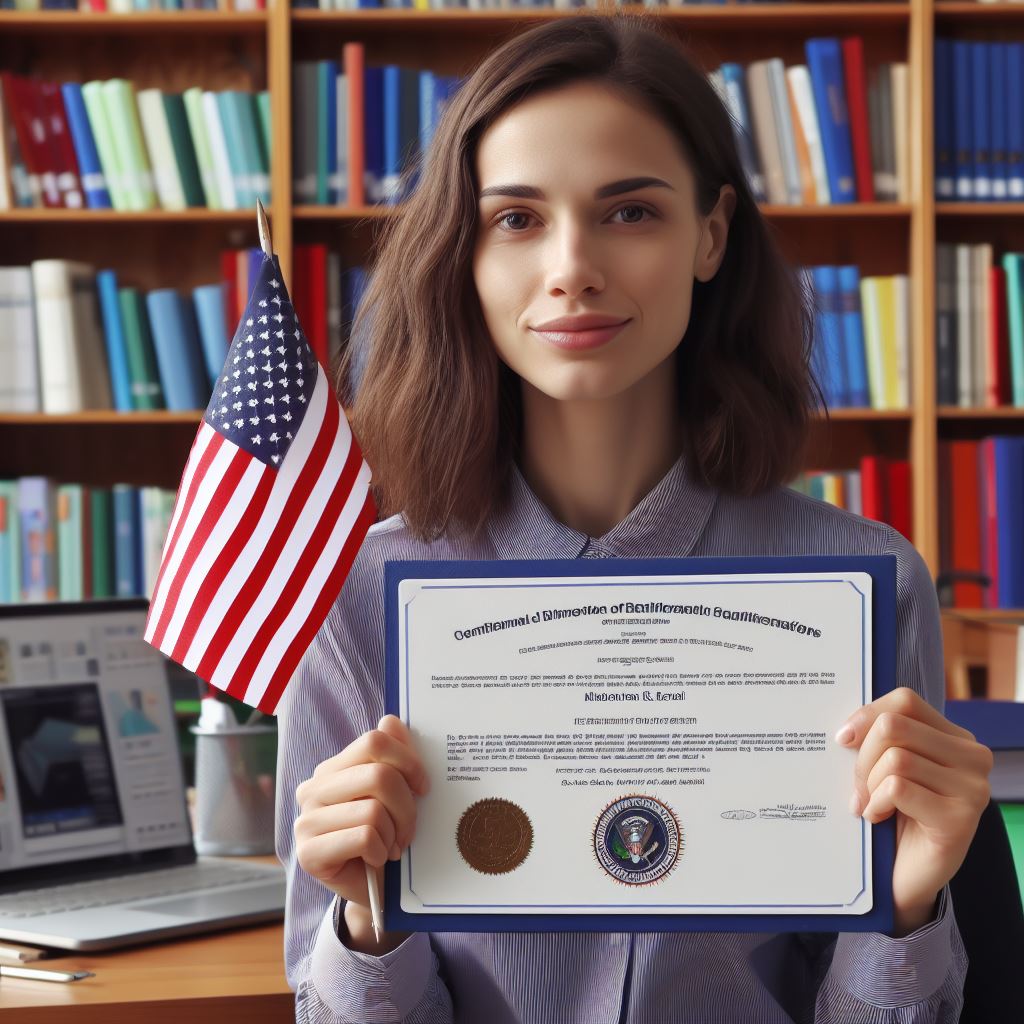Introduction
Librarian education and certification requirements in the US play a crucial role in shaping the field of librarianship.
Librarians must have the required education and certification to provide effective services in the rapidly evolving technological and information landscape.
Without proper education and certification, librarians may struggle to fulfill their roles and meet the diverse needs of their patrons.
This section will provide an overview of the education and certification requirements for librarians in the US, highlighting their significance in the profession.
In the field of librarianship, education serves as the backbone for developing the knowledge and skills necessary to excel in various aspects of the job.
A master’s degree in library and information science (MLIS) provides librarians with a foundation in information organization, research, and user needs.
Additionally, specialized courses are available to help librarians develop expertise in specific areas of librarianship, such as academic libraries or digital librarianship.
Certification, on the other hand, validates the librarians’ competency and expertise by meeting certain criteria established by professional organizations.
The American Library Association’s (ALA) Librarian Certification, requiring an MLIS degree and professional competence, is widely recognized in the US.
In the next sections, we’ll explore US librarian education and certification, detailing paths, benefits, ongoing development, and adapting to the evolving field.
Librarian Education Requirements
In order to become a librarian in the United States, there are specific education and certification requirements that must be met.
These requirements ensure that librarians have the necessary skills and knowledge to effectively serve the public in library settings.
Bachelor’s degree in any field as a minimum requirement
- A Bachelor’s degree is the minimum educational requirement to become a librarian.
- While the degree can be in any field, preferred degrees are in library science or related fields.
Having a Bachelor’s degree provides a foundational understanding of various subjects and develops critical thinking skills.
However, specialized education in librarianship is crucial to fully prepare individuals for the specific responsibilities of the profession.
Importance of Specialized Education in Librarianship
- Specialized education in librarianship enables individuals to gain knowledge and skills essential for library operations.
- These programs cover cataloging, information organization, collection development, reference services, and other relevant topics.
- They also teach advanced research techniques and provide hands-on experience through internships.
Librarians with specialized education have a deeper understanding of the organization and management of library resources, information systems, and technologies.
This knowledge contributes to the efficient functioning of libraries and enhances the services they provide to patrons.
Accreditation of Library Science Programs
- Accreditation ensures the quality and standardization of library science programs across the United States.
- The American Library Association (ALA) is the primary accrediting body for library science programs.
- ALA-accredited programs meet specific criteria and are regularly evaluated to maintain their accreditation status.
Choosing an ALA-accredited program is advantageous as it ensures that the education received meets nationally recognized standards.
It also indicates that the program prepares individuals for the challenges and demands of the profession.
In fact, becoming a librarian requires a minimum of a Bachelor’s degree, with preferred degrees in library science or related fields.
However, specialized education in librarianship and obtaining certification can significantly enhance a librarian’s skills and qualifications.
Transform Your Career Today
Unlock a personalized career strategy that drives real results. Get tailored advice and a roadmap designed just for you.
Start NowMeeting these education and certification requirements equips librarians to serve communities effectively, offering valuable resources and services.
Read: Specialized Training: Addressing LGBTQ+ Issues in Schools
Librarian Certification Requirements
- Librarian certification is an important requirement for professionals in the field.
- The American Library Association (ALA) offers certification options for aspiring librarians.
- Librarians are required to obtain a Master’s degree in Library Science from an accredited institution.
- Graduates should also complete a supervised internship or practicum as part of their certification process.
- Applicants must pass a comprehensive examination to become certified librarians.
Different Types of Librarian Certifications Available
- Public Librarian Certification: This certification is necessary for working in public libraries.
- Academic Librarian Certification: Required for librarians working in colleges and universities.
- Special Librarian Certification: For those working in specialized libraries like law or medical libraries.
- School Librarian Certification: Required for librarians working in K-12 schools.
Explanation of Certification Process
The certification process involves several steps:
- Earn a Master’s degree in Library Science from an accredited institution.
- Complete an internship or practicum to gain practical experience in a library setting.
- Apply for certification through the American Library Association or state library associations.
- Pass a comprehensive examination covering different aspects of library science.
Importance of Certification in Job Prospects and Career Advancement
Obtaining librarian certification significantly enhances job prospects and career advancement opportunities:
- Many employers require librarians to be certified for job applications.
- Certified librarians are more likely to be considered for promotions and leadership positions.
- Librarian certification demonstrates a higher level of knowledge and expertise.
- Job applicants with certification often have a competitive edge over non-certified candidates.
Continuing Education Requirements for Maintaining Certification
Once certified, librarians must fulfill continuing education requirements to maintain their certification:
- Librarians are expected to complete a specific number of continuing education units (CEUs) within a designated period.
- Continuing education helps librarians stay updated with the latest trends and advancements in the field.
- Attending conferences, workshops, and webinars can fulfill the continuing education requirements.
- Librarians can also engage in professional development activities or publish scholarly articles to maintain certification.
In short, librarian education and certification play a vital role in the profession. Certification opens doors to diverse job opportunities and offers avenues for career growth.
It is important for librarians to stay abreast of continuing education requirements to maintain their knowledge and skills in this constantly evolving field.
Read: Salary Insights: What to Expect as a Librarian in the US
Librarian Education and Certification Requirements by State
When it comes to becoming a librarian in the United States, there are education and certification requirements that vary across different states.
Each state has its own specific requirements, and it is important for aspiring librarians to understand them before pursuing a career in this field.
Variation in requirements across different states
The education and certification requirements for librarians can differ significantly from one state to another.
While some states have strict requirements, others have more flexible guidelines.
This variation can make it challenging for individuals who want to work as librarians in multiple states or who are open to relocating for job opportunities.
Examples of specific state requirements
Let’s take a look at some examples of specific state requirements for librarians in the United States.
1. California
In California, aspiring librarians must have a Master’s degree in Library Science from an accredited program.
They are also required to complete a supervised fieldwork or internship experience.
2. New York
In New York, librarians must have a Master’s degree in Library Science or a related field.
Additionally, they must pass the New York State Librarian Certification Exam and complete a supervised field experience.
3. Texas
In Texas, librarians must hold a Master’s degree in Library Science or Information Science from an accredited program.
Showcase Your Business Today
Reach thousands of readers actively exploring professional services. Publish your business profile and grow your audience now.
Publish NowThey must also pass the Texas Librarian Certification Exam.
Researching state-specific requirements
- To ensure compliance with state-specific requirements, it is crucial for aspiring librarians to thoroughly research the guidelines set by the state they wish to work in.
- This research can be done by visiting the official website of the state’s library association or department of education.
- Additionally, checking with local libraries or librarians in the desired state can provide valuable insights into the specific requirements.
- Lists of state-specific requirements can also be found on professional library websites or forums.
- Librarian requirements vary by state, typically outlining education, certification exams, and additional training or experience needed for the role.
- Aspiring librarians can also seek guidance from professional organizations such as the American Library Association (ALA) or state library associations.
- These organizations provide resources and support to individuals pursuing a career in librarianship and can offer information on state-specific requirements.
In essence, the education and certification requirements for librarians in the United States vary across different states.
Aspiring librarians must familiarize themselves with the specific requirements of the state they wish to work in order to pursue a successful career in this field.
Thorough research and professional guidance aid individuals in navigating state-specific requirements to achieve their goal of becoming librarians.
Read: The Impact of Digitalization on Librarians in the USA

Benefits of Meeting Education and Certification Requirements
Meeting library science education and certification requirements enriches librarians’ skills, opens job opportunities, and enhances earning potential.
Additionally, obtaining the necessary education and certification can also provide professional credibility and recognition within the field.
Enhanced Knowledge and Skills in Library Science
- Librarians who meet education and certification requirements gain a deeper understanding of library science principles and practices.
- Through coursework and training, librarians develop specialized skills that enable them to effectively manage library collections and provide informative services.
- Staying up-to-date on the latest advancements in library science ensures librarians can adapt to changing technology and industry trends.
- Continued education and certification help librarians strengthen their abilities in areas like cataloging, reference services, and information literacy.
Increased Job Opportunities
- Librarians who meet education and certification requirements have access to a wider range of job opportunities in the library field.
- Many libraries, particularly larger institutions, require candidates to hold specific degrees or certifications for professional positions.
- Having the necessary qualifications allows librarians to apply for positions in academic libraries, public libraries, special libraries, and other specialized library settings.
- Meeting requirements also enables librarians to pursue leadership positions within the library profession.
Higher Earning Potential
- Meeting education and certification requirements can lead to higher earning potential for librarians.
- Librarians with advanced degrees or specialized certifications often qualify for higher-level positions with corresponding salary scales.
- Having the necessary qualifications demonstrates a commitment to professional growth and expertise, making librarians valuable assets to employers.
- Librarians who meet requirements may be more likely to receive promotions or salary increases throughout their careers.
Professional Credibility and Recognition
- Earning the required education and certifications provides librarians with professional credibility and recognition within the library field.
- Meeting these standards demonstrates a commitment to quality and excellence in providing library services.
- Librarians who meet requirements are often seen as highly knowledgeable and reliable sources of information.
- Certifications, like those from the American Library Association, establish professional credibility and open doors to networking opportunities.
Basically, meeting education and certification requirements in library science offers numerous benefits to librarians.
From enhancing knowledge and skills to opening up job opportunities and increasing earning potential, the advantages are substantial.
Meeting these requirements not only contributes to librarians’ overall success but also enhances their professional credibility and recognition in the field.
Challenges in Meeting Education and Certification Requirements
In the field of librarianship, obtaining education and certification has its fair share of challenges.
These obstacles can range from financial implications to balancing work and studies.
Furthermore, some individuals face barriers when trying to access educational resources. Let’s explore these challenges in detail:
Financial Implications of Pursuing Education and Certification
- Tuition fees: Enrolling in an accredited library science program involves significant financial investment.
- Expenses for study materials: Books, online resources, and other materials necessary for academic success can be costly.
- Travel expenses: Attending classes, seminars, or conferences may require travel, resulting in additional financial burdens.
- Limited income during studies: Many students reduce their work hours or quit their jobs while pursuing education and certification, leading to potential financial instability.
- Student loans: Some individuals resort to student loans, which accumulate interest and add to the financial burden after graduation.
Balancing Work and Studies
- Time management: Effectively managing time between work and studies is crucial to meet education and certification requirements.
- Flexible work options: Having a supportive employer who offers flexible hours or remote work options can alleviate the challenges.
- Utilizing downtime: Utilizing breaks, evenings, and weekends to maximize study time can help balance work and education.
- Setting realistic goals: Setting achievable goals helps in maintaining focus and progress in both work and studies.
- Seeking support: Utilizing support systems like mentors, colleagues, or friends can provide guidance and encouragement during the balancing act.
Overcoming Barriers to Access Education Resources
- Geographical limitations: Individuals residing in remote or economically disadvantaged areas might face limited access to educational resources.
- Lack of library resources: Some libraries may not have adequate resources or materials for individuals seeking education and certification.
- Internet access: Lack of reliable internet access can hinder individuals from accessing online educational resources and programs.
- Technological literacy: Some individuals may struggle with navigating online platforms or lack the necessary digital skills for online education.
- Language barriers: Non-proficient individuals in the predominant language of educational materials may encounter challenges accessing and understanding resources.
Despite these challenges, librarianship is a rewarding profession that allows individuals to contribute significantly to their communities.
By recognizing and addressing these obstacles, aspiring librarians can better prepare themselves for the journey ahead.
Read: Diverse Roles and Job Titles for Librarians in the US
Conclusion
The education and certification requirements for librarians in the US play a crucial role in ensuring the professionalism and quality of library services.
Librarians, armed with a Master’s in Library Science and certifications, are well-prepared to serve their communities with expertise.
These requirements ensure that librarians are adept at handling information resources, conducting research, and organizing library collections.
Additionally, they enable librarians to understand and cater to the diverse needs of patrons, ranging from children to elderly individuals.
Beyond qualifications, these requirements foster collaboration and leadership, empowering librarians to excel in information provision and facilitation.
Overall, the education and certification requirements for librarians in the US have a profound impact on the professionalism and quality of library services offered.
They provide librarians with the expertise for the information age and ensure libraries remain essential community resources.
Aspiring librarians must pursue relevant education and certifications to meet field demands and provide exceptional service to users.
[E-Books for Sale]
The Big Book of 500 High-Paying Jobs in America: Unlock Your Earning Potential
$19.99 • 500 High-Paying Jobs • 330 pages
Explore 500 high-paying jobs in America and learn how to boost your career, earn more, and achieve success!
See All 500 High-Paying Jobs of this E-Book
1001 Professions Without a Degree: High-Paying American Jobs You Can Start Now
$19.99 • 1001 Professions Without a Degree • 174 pages
Discover 1001 high-paying jobs without a degree! Unlock career tips, skills, and success strategies for just $19.99!




